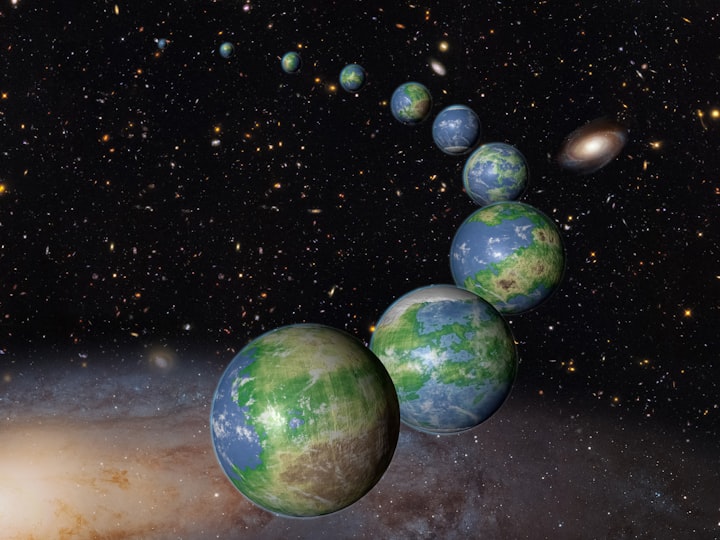Futuristic AI world and its impact on human beings
It is our responsibility to make a strictly planned AI world which doesn't affect our human community.

Artificial Intelligence (AI) has the potential to transform the world and change the way we live, work, and interact with each other. However, as with any new technology, AI also raises a number of concerns and challenges that need to be addressed to ensure that it is used in a way that is ethical and responsible.
One of the key areas where AI is expected to have an impact is in the workplace. With the ability to automate repetitive tasks and make decisions based on data, AI has the potential to significantly increase productivity and efficiency. However, this could also lead to job losses, as machines replace human workers in many industries. This is a significant concern, and it is important that we find ways to address this issue, such as investing in reskilling programs to help people transition to new jobs as machines take over their current roles.
Another area where AI is expected to have an impact is in healthcare. AI has the potential to transform the way we diagnose and treat diseases, making healthcare more accessible and personalized. However, there are also concerns about the potential for AI algorithms to perpetuate discrimination and bias in the healthcare system, which could result in unequal access to care. It is important that we carefully consider the ethics and social implications of using AI in healthcare and develop safeguards to ensure that it is used in a way that is fair and equitable.
In our daily lives, AI has the potential to make our lives easier and more convenient, for example by automating tasks such as driving and cooking. However, the increasing use of AI in our daily lives also raises concerns about privacy and security, as machines become increasingly integrated into our lives. To ensure that AI is used in a way that protects our privacy and security, it is essential that we develop robust safeguards to ensure that our data is protected from misuse or abuse.
Finally, it is important to consider the impact of AI on the future of our society. As AI becomes more advanced and widespread, it is likely to play a central role in shaping the world of tomorrow. If we are not careful, AI could perpetuate existing inequalities and lead to a society that is more divided and less equal. To ensure that AI has a positive impact on society, it is essential that we think carefully about the ethical and social implications of its use and develop safeguards to ensure that it is used in a way that promotes equality and fairness.
In conclusion, AI has the potential to transform the world and change the way we live, work, and interact with each other. However, to ensure that AI is used in a way that is ethical and responsible, it is essential that we address the concerns and challenges it raises and develop safeguards to ensure that it is used in a way that is fair and equitable. The impact of AI on human beings is likely to be profound, and it is important that we take the time to consider its implications and ensure that it is used for the benefit of humanity.
ChatGPT Jan 30 Version. Free Research Preview. Our goal The world of tomorrow is rapidly advancing and the concept of artificial intelligence (AI) is rapidly becoming a reality. AI is a form of technology that is capable of simulating human intelligence, including learning, reasoning, and decision making. In the near future, AI is expected to have a profound impact on our lives, changing the way we live, work, and interact with the world around us.
One of the most significant areas where AI is expected to have an impact is in the workplace. With the ability to automate repetitive tasks and make decisions based on data, AI is expected to revolutionize the way we work. For example, in industries such as manufacturing and retail, AI robots could take over many of the tasks that are currently performed by human workers, freeing them up to focus on more creative and complex tasks. This could result in a significant increase in productivity and efficiency, but it could also lead to job losses, as machines replace human workers.
Another area where AI is expected to have an impact is in healthcare. With the ability to analyze vast amounts of medical data and make diagnoses based on that data, AI has the potential to transform the way we diagnose and treat diseases. For example, AI algorithms could be used to analyze medical images, such as X-rays and MRIs, to identify diseases and conditions at an early stage, allowing for earlier treatment and better outcomes. In addition, AI-powered wearable devices could be used to monitor our health in real-time, providing early warning signs of potential health problems.
The rise of AI is also expected to have a profound impact on the way we live our daily lives. With the ability to automate many of the tasks we currently perform, such as driving and cooking, AI could make our lives easier and more convenient. For example, self-driving cars could eliminate the need for human drivers, freeing up time and reducing the risk of road accidents. At the same time, however, the increasing use of AI in our daily lives could also raise concerns about privacy and security, as machines become increasingly integrated into our lives.
One of the key challenges facing the development of AI is ensuring that it is designed and used in a way that is ethical and responsible. There are concerns that AI could be used to perpetuate discrimination and bias, or that it could be used to automate tasks that are currently performed by human workers, leading to widespread job losses. There is also the risk that AI could be used for malicious purposes, such as cyberattacks and espionage. To ensure that AI is used for the benefit of humanity, it is essential that we develop ethical and responsible guidelines for its development and use.
In conclusion, the world of tomorrow is rapidly advancing and the concept of artificial intelligence is rapidly becoming a reality. AI has the potential to revolutionize the way we live, work, and interact with the world around us, but it also poses significant challenges and risks. To ensure that AI is used for the benefit of humanity, it is essential that we develop ethical and responsible guidelines for its development and use. The future of AI is uncertain, but one thing is certain – it is sure to have a profound impact on the world we live in.






Comments
There are no comments for this story
Be the first to respond and start the conversation.